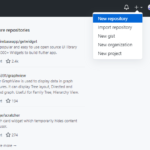The power of quantum computing is often compared to the immense computational power of our brains. But there are many differences between how we think and what quantum computers can do. Every day, people use simple computers for email, social media, news, and more. These machines rely on classical physics – they process information using binary bits that represent either a zero or one.

Table of Contents
What is Quantum Programming?
This type of computer has been around since the 1940s (and was first proposed by Alan Turing). The earliest models were big clunky cabinets that filled entire rooms; today you can find them in your pocket! They’re called smartphones, tablets, or laptops.
Quantum processors operate according to different principles than those used by traditional computers: rather than relying on binary logic, they make use of qubits that can represent both zero and one at the same time.
This is possible because certain physical properties of quantum particles remain undecided until you measure them. Knowing this, it’s possible to build a computer where multiple calculations are processed simultaneously instead of one by one as with classical computers.
How Does Quantum Programming Help Us?
One way to think about it is like this: A regular computer processes information in steps, each building on the last. Imagine trying to find your car keys in your messy room after first finding them under your bed.
The first step may be moving all the bookshelves without realizing they were hiding the keys behind them! With a quantum computer though, it would be more like being able to quickly move each individual book – not just shifting the entire bookcase – until you find what you were looking for.
The quantum revolution is still in its infancy though. The problem with a working quantum computer is that it can only be used a few microseconds at a time before the information it processes becomes lost due to environmental noise and other factors.
To help keep their fragile state intact, quantum processors are kept in isolated chambers at very cold temperatures (close to absolute zero). If we can solve these challenges then computers will work even more quickly than they do today while using less energy! We may someday have mobile devices that run on just a battery pack the size of your phone.
Another area where quantum computing really shines is optimization: finding the best solution from among all possible options instead of just one. It’s possible because the amount of time needed to find that best option is drastically reduced – imagine trying to find where you put your car keys when you can look through each book in your room without having to shift them all!
Solving problems like these will help us improve our lives and businesses by increasing speed, accuracy, and security in everything from web searches, financial transactions, and social media interactions.
After Thoughts
Quantum computing offers many benefits to computing as we know it. It could help us find the best solution from among all possible options, or process multiple calculations at once instead of one by one.
Its power is limited for now though because quantum processors can only run a few microseconds before the information they process becomes lost due to environmental noise and other factors.
If we can solve these challenges then computers will work even more quickly than they do today while using less energy! Though it is still in its infancy, quantum programming has the potential to revolutionize computing as we know it.
However, after the advent of quantum programming languages that can partially perform this task, there were still several issues that kept them from becoming popular. In addition, the languages were not built with quantum algorithms in mind. The other significant distinction is that measurements and values had to be calculated using a computer, such as bits and pixels, which proved to be difficult.


